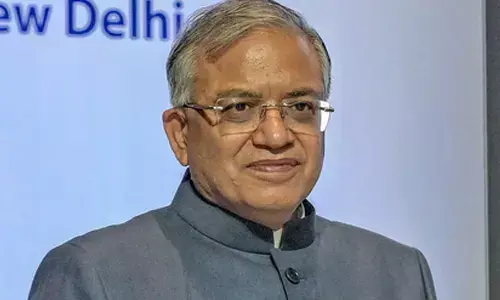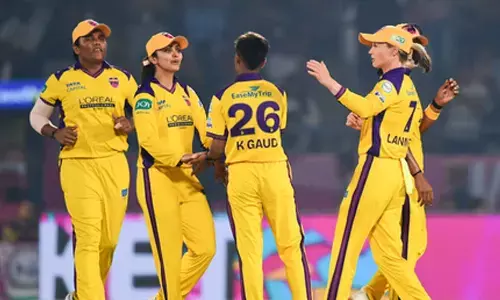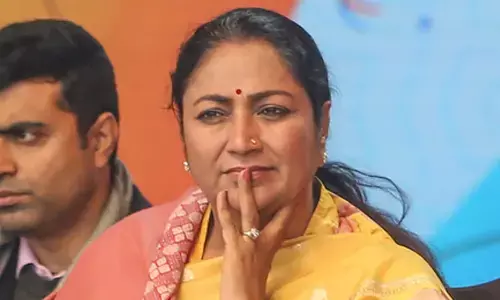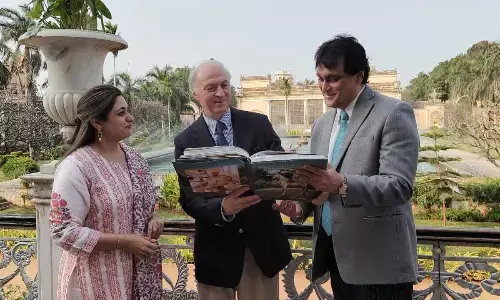It's now Ma, Mati, Mafia

It\'s Now Ma, Mati, Mafia. Mamata Banerjee isn\'t very different from the likes of, say, Lalu Prasad or Mulayam Singh Yadav of the Hindi heartland who believe that their being in power is enough to satisfy those belonging to their caste, in this case the Yadavs, along with others in the intermediate castes, and that their followers do not care if there are no roads or electricity.
The perceptible fall in Mamata's popularity has led to an understandable rise in the BJP's prospects although the saffron party has never been a major player in West Bengal... voters are now turning to the only alternative before them in view of their disillusionment with both the Marxists and Trinamool
Mamata Banerjee isn't very different from the likes of, say, Lalu Prasad or Mulayam Singh Yadav of the Hindi heartland who believe that their being in power is enough to satisfy those belonging to their caste, in this case the Yadavs, along with others in the intermediate castes, and that their followers do not care if there are no roads or electricity.
.jpg)
In Mamata's case, it isn't caste which propelled her to the top of the popularity charts around 2010-11, but the promise of change or 'poriborton' from the three-decade-old Left rule. The change was to be not only from economic stagnation, caused by the flight of capital because of militant trade union tactics and frequent strikes, but also from the high-handedness of the Communist cadres who ruled the roost in virtually every locality.
It was Mamata's courageous stance against these political goons, exemplified during the agitations in Singur and Nandigram against the acquisition of land, which laid the foundation of her electoral triumph in 2011. The slogan behind her victory was “Ma-Mati-Manush”, which underlined her proximity to ordinary people and the pursuit of a compassionate version of politics unlike the hauteur and aggression of the Marxists.
However, the 'poriborton' which she promised has turned out to be for the worse. The reasons are, first, her inability to make the transition from being a rabble-rouser to an administrator. Almost all her acts have been motivated by a desire to grab the headlines - from walking out of the Manmohan Singh government on the issue of foreign investment in the retail sector to opposing Pranab Mukherjee's candidature for the president's post.
Secondly, her decision to oust the Tatas from Singur, where the first Nano factory was to be built, has meant that she has burnt her boats so far as the industrial community is concerned. But economic stagnation is not her only Achilles heel. Under her, the cadres of the ruling Trinamool Congress have begun to emulate the Marxist goons of the earlier years in full measure - terrorizing ordinary people and members of rival parties and extorting money from builders and entrepreneurs. Hence, the coinage of the term, Ma-Mati-Mafia, by the chief minister's critics. To make matters worse, Mamata's own conduct has exposed her to a great deal of flak, especially her cynical reaction to incidents of rape, such as the one on Park Street in 2012 which she described as 'sajano ghatona' or a concocted incident, and her intolerance which led to the arrest of a professor who had made fun of her in a cartoon on the internet.
The perceptible fall in Mamata's popularity has led to an understandable rise in the BJP's prospects although the saffron party has never been a major player in West Bengal. For instance, in the 2009 parliamentary polls, it secured six percent of the votes and four percent in the 2011 assembly elections. Now, there has been a jump in its vote share to 16.8 percent, which can only be explained by the fact that the voters are now turning to the only alternative before them in view of their disillusionment with both the Marxists and Trinamool.
Their disappointment is now turning to anger as the Central Bureau of Investigation (CBI) is closing in on the bigwigs in Trinamool for their suspected complicity in the Sarada chit fund scam. The extent of Mamata's nervousness over this development is evident from the protests which her party organised against the CBI in Kolkata and her threat to set the cadres on the media which, she thinks, is ruining her image.
Not since B.C. Roy's death in 1962 has the state had a leader capable of restoring its primacy of place in the country's industrial and cultural fields as before.
The slide which began under the Communists has continued with the conditions seemingly reaching their lowest point under Mamata. Rarely has a state experienced such a prolonged period of bad luck.














